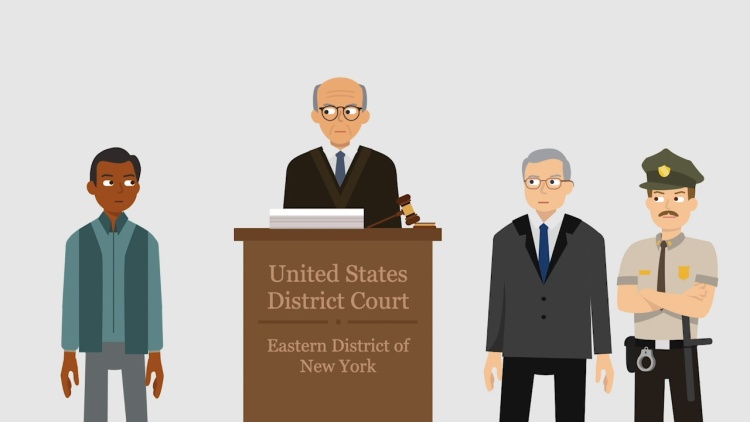Ziglar v. Abbasi
United States Supreme Court
137 S. Ct. 1843, 582 U.S. 120 (2017)
- Written by Abby Roughton, JD
Facts
While investigating tips about potential terrorist activity after September 11, 2001, the FBI arrested hundreds of people who were present in the United States illegally and detained them on immigration charges. If the FBI considered an arrestee of interest to its investigation, the arrestee was held in custody without bail until the FBI cleared him. Eighty-four people, including Ahmer Abbasi (plaintiff), were detained pursuant to this policy at the Metropolitan Detention Center (MDC) in Brooklyn, New York. The detainees were kept in small cells for 23 hours per day and were regularly shackled and strip searched. Guards allegedly physically and verbally abused the detainees by, among other things, breaking their bones and insulting their religion. Abbasi and five other Arab or South Asian men who had been detained at the MDC brought an action against former U.S. executive-branch officials and wardens at the MDC (defendants). The plaintiffs sought damages under Bivens v. Six Unknown Fed. Narcotics Agents, 403 U.S. 388 (1971), for violations of their rights under the Fourth and Fifth Amendments. The district court dismissed the claims against all defendants except the MDC wardens. The appellate court affirmed the decision about the wardens in most respects but reversed the decision about the other defendants and reinstated the plaintiffs’ claims. The United States Supreme Court granted certiorari.
Rule of Law
Issue
Holding and Reasoning (Kennedy, J.)
Dissent (Breyer, J.)
What to do next…
Here's why 910,000 law students have relied on our case briefs:
- Written by law professors and practitioners, not other law students. 47,100 briefs, keyed to 997 casebooks. Top-notch customer support.
- The right amount of information, includes the facts, issues, rule of law, holding and reasoning, and any concurrences and dissents.
- Access in your classes, works on your mobile and tablet. Massive library of related video lessons and high quality multiple-choice questions.
- Easy to use, uniform format for every case brief. Written in plain English, not in legalese. Our briefs summarize and simplify; they don’t just repeat the court’s language.





